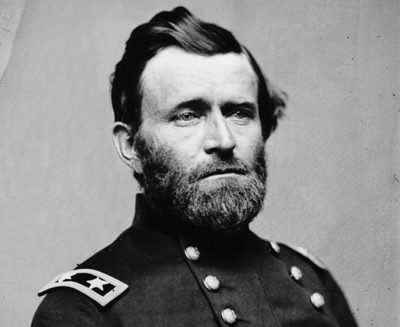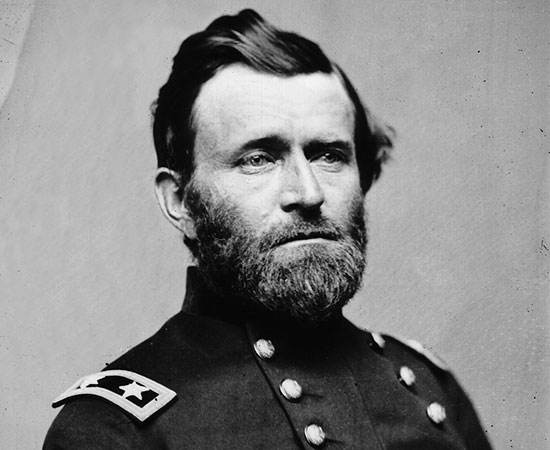EDITOR’S NOTE | By Bret Bradigan
The Ghost of U.S. Grant

President and General Ulysses S Grant.
There’s so much to be grateful for in the “Little Orange,” our incredible weather, our stunning natural beauty and our tight-knit community. Each voting day, I swell with civic pride because of our best-in-Ventura County turnout for even the most obscure special election. We take our franchise seriously. We are also in danger of taking it for granted.
In 2011 alone, there were more than 180 bills introduced in 41 states that increased barriers to exercising the right to vote. Most of these laws restricted the forms of identification needed to cast a ballot, as well as limits on absentees and early voting. In total, more than 5 million people have been affected by these changes. These restrictions disproportionately make it harder for students, active duty military and elderly to exercise their most basic franchise.
And it will get worse — the Supreme Court has allowed states to roll back protections of the epic 1965 Voting Rights Bill, which gives free rein to all those trying to depress turnout with fewer open precincts in targeted neighborhoods and populations, to gerrymandering efforts to “pack and crack” electoral districts. And not only is nothing is being done to curb foreign meddling, it is, in fact, being encouraged.
It’s reminiscent of another time in our history, the early days after the Civil War left 750,000 Americans dead, the scars of which remain to this day. We could use another Ulysses S. Grant, someone with a grand strategy of compassion and kindness to knit this tattered country back together, a Mender-in-Chief.
Grant (please read Ron Chernow’s magisterial biography, you’ll thank me) was perhaps the most unlikely of leaders to emerge from the chaos of that tragic war. A failed soldier, he was drummed out of the Army because of his alcoholism. He then went on to another string of failures, in farming and in business, before resigning himself to a job as a leather goods store clerk in Galena, Ill., working for his (younger) brother.
When Fort Sumter was fired upon in 1861, Grant traded on his family’s relationship with their congressional representative Elihu Washburne to get himself re-instated into the Army. Since most of the military’s leadership (and arsenal) defected to the Confederate cause, the Union could hardly afford to be picky; given the many politically connected generals that bedeviled Lincoln, with their Machiavellian machinations, this former West Point graduate, even with a drinking problem, who was strategic, aggressive and inspiring, was a godsend. Plus, he had something to prove.
Comes the hour, comes the man. Grant’s steady ascent from drill instructor to grand strategist and the nation’s second Lieutenant General (George Washington was the first) gave hope to battle the nation’s existential threat. But what most made true Lincoln’s plea to the “better angels of our nature,” was Grant’s magnificently generous terms of surrender for the rebels at Appomattox Courthouse, letting the defeated Confederates keep their honor and sending them home to sow their gardens, which paved the way for their return to the Union. Despite Andrew Johnson’s attempts to prosecute top southern generals like General Lee and Longstreet, Grant’s huge popularity and moral sway prevented the reprisals that Lincoln feared.
But where Grant really shone was during his presidency, with his fierce attempts to integrate former slaves into our democracy, squashing the Ku Klux Klan and more proximate attempts to intimidate black voters. Had we lived up to the promise of Grant’s Civil Rights Act of 1875, this country may have not had decades of racial turmoil. Slavery is this country’s original sin, a sin that haunts us to this day. It wasn’t until 90 years later, in 1965, in fact, that we reached again the same levels of protection for voting rights.
My fear is that we are gradually sliding down the same slippery slope toward restrictive voting that Grant fought against so vigorously. We could use a man like him again, someone whose impeccable moral credentials can lead the fight back toward the American (and Ojaian) ideal.


Leave A Comment